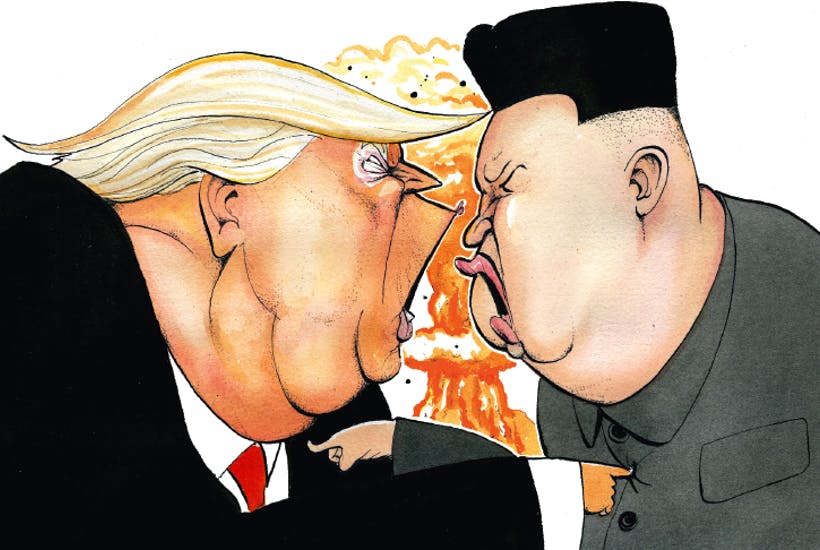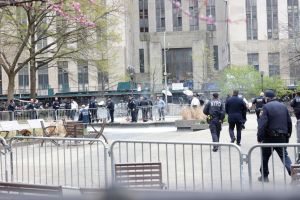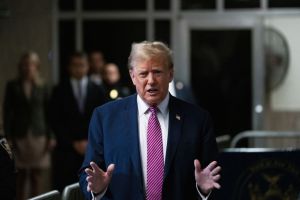Donald Trump means different things to different people. To his core supporters, he’s the man who will make America great again. To his diehard opponents, he is a dangerous juvenile with authoritarian tendencies. Ultimately, these descriptions are secondary to how Trump sees himself: a tough, dealmaking Svengali who has the experience and power of persuasion to get a deal that is advantageous to himself and to the people he represents.
Democrats laugh and dismissively wave off that mindset as self-delusion. Even some Republicans would likely roll their eyes in private. Trump, of course, knows this too well – which is why his dalliance with North Korea’s Kim Jong-un this week is such a pivotal moment for his own sense of confidence as a leader.
To Trump, being the first sitting American president to shake hands with a North Korean despot is about much more than kicking off a diplomatic process to denuclearize the Hermit Kingdom. His June 12 meeting in Singapore is also a major inflection point in his long and very public career. Indeed, perhaps above all other considerations, the summit in Trump’s mind is a prime opportunity for him to prove to all his critics – and to the world at large – that they were wrong about his negotiating acumen, his competence, and his leadership capabilities.
It’s no secret that Trump gets a hoot out of rankling the naysayers and humiliating his opponents. From the moment he inherited his father’s real-estate empire and sought to make the name “Trump” an international brand, “the Donald” has been the subject of intense scorn and ridicule. As Trump beat reporter and New York Times correspondent Maggie Haberman has observed in the new Showtime series “the Fourth Estate,” Trump sees himself as somebody who was never given the credit and adulation he deserved from his peers. His fellow real estate mavens in New York didn’t think much of his capacity as a negotiator and a player, and the New York City tabloids largely wrote him off as a clown a long time ago.
Not much has changed since he reached the Oval Office eighteen months ago. In fact, the doubts over his psychological state and intellect have only increased in intensity. In the 1990’s, Trump bashing was largely confined to Manhattan; now, it percolates in capitals around the world. The constant drum of criticism beats into Trump’s mind every day of the week – if not every minute of every hour of the day.
If there is any event that could chip away at Trump’s agony and provide him with the kind of ammunition he could unleash upon his political adversaries, it would be leaving Singapore this week on a high note. As previous U.S. negotiators will tell you, haggling with the North Koreans can be like repeatedly slamming your head against a wall. But in the event Trump pulls off something that can be called a success with the nuclear-armed dictator, the incoming fire he has received during his first year and a half on the job may start to dissipate. The criticism will still be there (Robert Mueller’s ongoing investigation, after all, remains the proverbial three-headed dragon), but the narrative will lose some its sharp edge.
President Trump has two central objectives when he sits down with Kim Jong-un. The first is to begin a process of dialogue that can be sustained over a long period of time, one which will ideally result in an historic denuclearisation-for-normalisation agreement.
The second, however, is likely to be just as satisfying for him: forcing his enemies to eat a little crow.


















